Enhanced TDS
Identification & Functionality
- Additives Included
- Blend
- Yes
- Chemical Family
- Country of Origin
- Polymer Name
- Product Code
- MITM01778
- Single Ingredient
- No
- Technologies
- Product Families
Features & Benefits
- Labeling Claims
- Materials Features
Applications & Uses
- Plastics & Elastomers End Uses
- Plastics & Elastomers Processing Methods
- Markets
- Applications
- Processing Information
- Injection Molding
- Film Extrusion
- Profile Extrusion
- Extrusion
- Transfer Molding
- Casting
- Thermoforming
- Processing Information
- Typical melt temperature (Min / Recommended / Max) : 200°C / 240°C / 270°C.
- Typical mold temperature : 10 – 30°C.
- Drying time and temperature (only necessary for bags/containers opened for more than two hours) : 4-6 hours at 60-70°C.
- Product Applications
- Flexible injected parts
- High performance power trasmission belts
- Silent gears
- PA6 film modifier
Properties
Technical Details & Test Data
- Technical Data
Viscosity-shear Rate
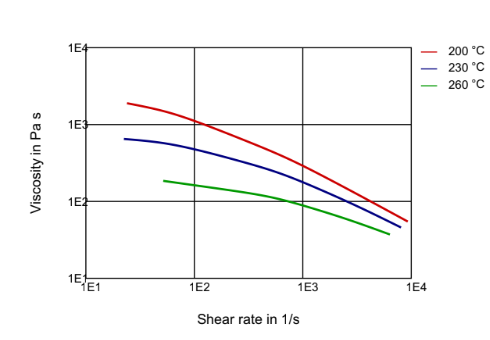
Shearstress-shear Rate
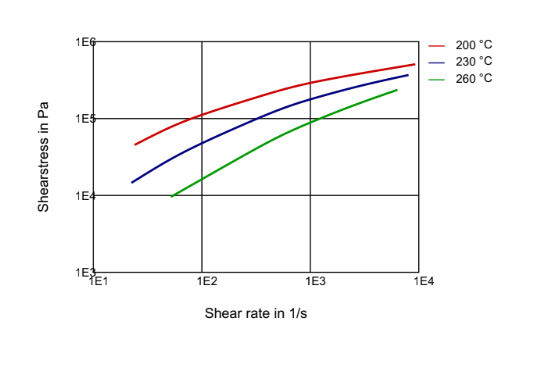
Stress-strain
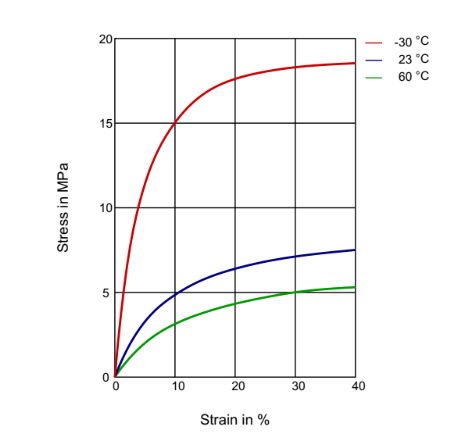
Secant Modulus-strain
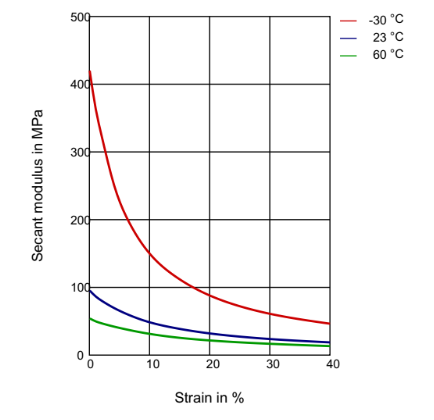
Stress-strain (Isochronous) 23°C
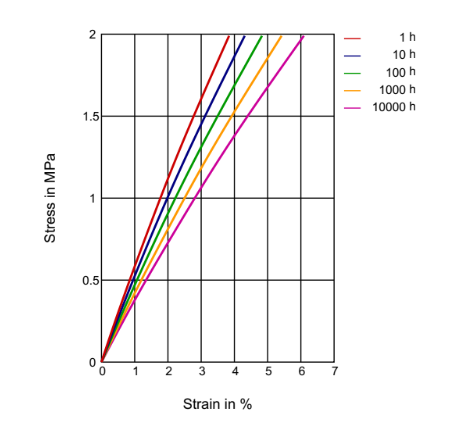
Creep - Modulus 23°C
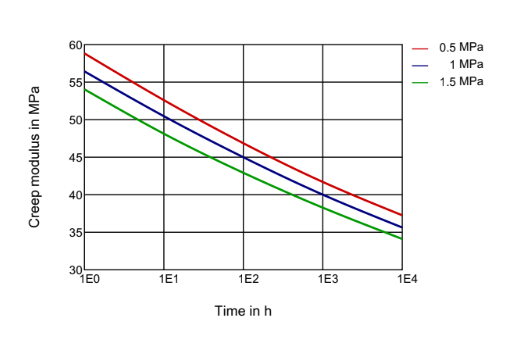
Stress - Strain(Isochronous) 60°C
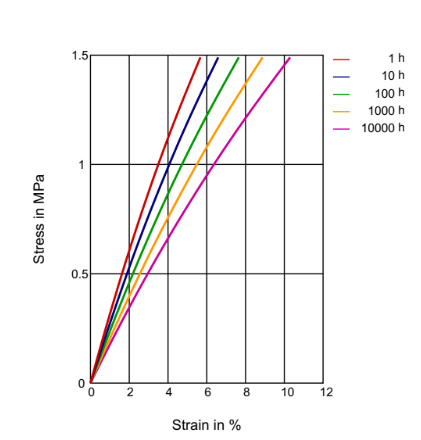
CREEP MODULUS-TIME 60°C
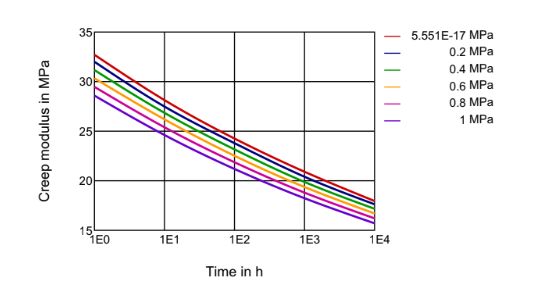
Stress - Strain (Isochronous) 80°C
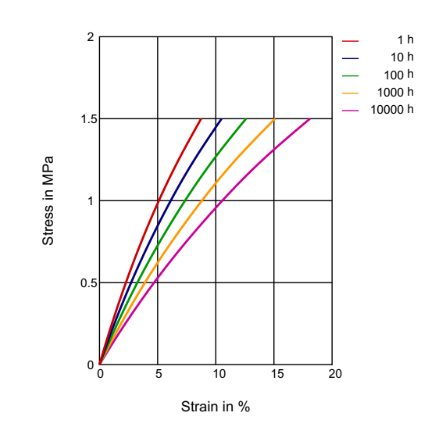
Creep Modulus-Time 80°C
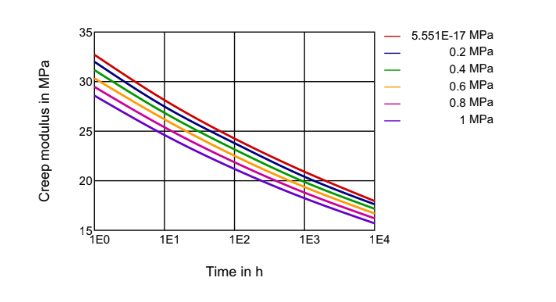
Stress - Strain (Isochronous) 100°C
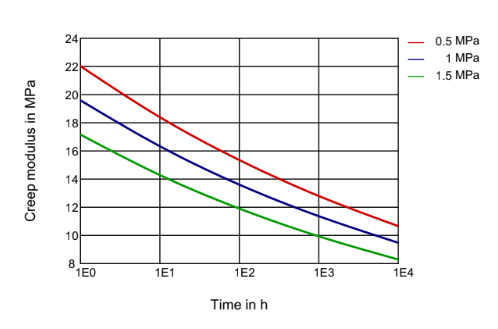
Creep Modulus - Time 100°C

Specific Volume - Temperature (PVT)
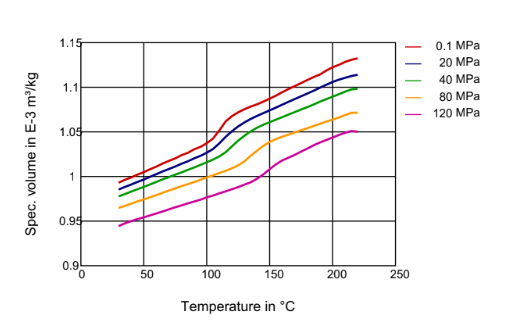
Packaging & Availability
- Packaging Type
Principal Information
- Group Principal Number
- S000003
- Principal
Other
- Color (SDS)
- Colorless to slightly yellow
- Item Number
- Odor (SDS)
- Odorless
- Other Hazards
- Processing may release vapors and/or fumes which cause eye, skin and respiratory tract irritation, Prolonged or repeated exposure may cause: headache, drowsiness, nausea, weakness, (severity of effects depends on extent of exposure).
- Protect from Freezing
- Yes
- Temperature Control
- Yes
- USA/DOT UN Number
- Not Applicable
- Electrical Properties
Value Units Test Method / Conditions Comparative Tracking Index 600.0 - IEC 60112 condensed Dielectric Constant 7.0 - IEC 60250 at 100 Hz, dry Dielectric Constant 5.0 - IEC 60250 at 1MHz, dry Dielectric Strength 39.0 kV/mm kV/mm IEC 60243-1 dry basis Dissipation Factor 0.071 tan δ tan δ IEC 60250 100Hz, dry Dissipation Factor 0.0604 tan δ tan δ IEC 60250 1MHz, dry Surface Resistance 3000000000000.0 Ω Ω IEC 60093 condensed Volume Resistivity 260000000000.0 Ω-cm Ω-cm IEC 60093 dry basis - Mechanical Properties
Value Units Test Method / Conditions Compression Set 32.0 % % ISO 815 at 23°C, 24h Hardness 35.0 Shore D Shore D Hardness 90.0 Shore A Shore A Shore Durometer Scale Hardness 35.0 Shore A Shore A ISO 868 Strain at Break min. 50.0 % % ISO 527-1 Dry, at break Strain at Break min. 300.0 % % ISO 527-1 dry, thermoplastic elastomer, at break Strain at Break min. 50.0 % % ISO 527-2 at break, condensed Stress 11.0 MPa MPa ISO 527-1 dry, at 100% elongation Stress 5.0 MPa MPa ISO 527-1 dry, at 10% elongation Stress 9.0 MPa MPa ISO 527-1 dry, at 50% strain Stress 9.0 MPa MPa ISO 527-2 condensed, at 50% strain Stress at Break 40.0 MPa MPa ISO 527-1 dry, thermoplastic elastomer, at break Tear Strength 85.0 kN/m kN/m ISO 34-1 dry basis Tensile Modulus 73.0 MPa MPa ISO 527-1 dry basis Tensile Modulus 71.0 MPa MPa ISO 527-2 condensed Volume Loss 48.0 mm³ mm³ ISO 4649 Dry, Abrasion Resistance - Physical Properties
Value Units Test Method / Conditions Density 830.0 kg/m³ kg/m³ dry, liquid Density 1000.0 kg/m³ kg/m³ ISO 1183 condensed Density 1000.0 kg/m³ kg/m³ ISO 1183 dry basis Glass Transition Temperature (Tg) -65.0 °C °C ISO 11357-1 at 10°C/min, dry Humidity Absorption 0.5 % % ISO 62 dry basis Load/Unload Temperature 52.0 °C °C ISO 527-1 at 0.45 MPa, dry, deflection under load Melting Point 160.0 °C °C ISO 11357-1 at 10°C/min Mold Shrinkage 1.1 % % ISO 2577 normal, dry Mold Shrinkage 0.4 % % ISO 2577 parallel, dry Mold Shrinkage 1.1 % % ISO 294-4 normal, dry Mold Shrinkage 0.4 % % ISO 294-4 parallel, dry Softening Point 131.0 °C °C ISO 306 at 50°C/h, 50N, dry Storage Temperature 140.0 °F °F Water Absorption 1.2 % % ISO 62 dry basis - SDS Physical and Chemical Properties
Value Units Test Method / Conditions Decomposition Temperature (SDS) 572.0-662.0 °F °F - Shelf Life & Stability
Value Units Test Method / Conditions Shelf Life 2.0 yr yr - Thermal Properties
Value Units Test Method / Conditions Coefficient of Thermal Expansion 0.000195 /K /K ISO 11359-1 dry, parallel Specific Heat 2800.0 J/kg.K J/kg.K dry, of melt Thermal Conductivity 0.18 W/m·K W/m·K
